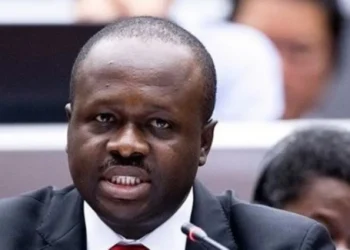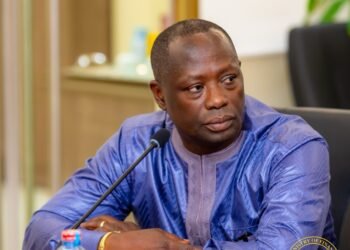The government of the Democratic Republic of Congo (DRC) has formally banned the political party of former President Joseph Kabila, citing alleged links to M23 rebels — a rebel group currently controlling vast areas in the eastern region of the country.
This dramatic move comes as Kabila is believed to have returned to the DRC after a two-year stay in South Africa, reportedly reappearing in the strategic eastern town of Goma. In January this year, the same town fell under the control of the M23 rebels, widely believed to be backed by Rwanda.
Kabila, who ruled the country for 18 years following the assassination of his father, Laurent Kabila, in 2001, is now at the center of one of the most politically charged accusations in recent Congolese history. At just 29 years old when he took power, Kabila’s reign was both lengthy and controversial, marked by conflict, political instability, and eventually, contested transitions of power.
In a statement issued by the interior ministry, authorities justified the ban of Kabila’s People’s Party for Reconstruction and Democracy (PPRD) by citing the party’s “ambiguous attitude” toward the rebel occupation. The statement also referenced Kabila’s decision to return specifically to Goma, an area now considered under enemy control, suggesting hostile forces are protecting him.
Kabila Faces Treason Accusations
The PPRD has not issued any official response to the ban. However, the government’s actions escalated further when it formally accused Kabila of high treason and ordered the seizure of all his assets on Friday, April 18. Despite these accusations, Kabila has not issued a public statement regarding the latest developments or confirmed his presence in Goma.
In the past, Kabila has denied any connection to M23. Yet the current silence from his camp, coupled with his conspicuous reappearance in Goma, has only fueled speculation. His spokesperson, Barbara Nzimbi, announced on X that Kabila “would be addressing the nation in the coming hours or days.”
Meanwhile, the M23 rebels have neither confirmed nor denied Kabila’s presence. A spokesperson for the group remarked, “I don’t see any problem with him being here.”

Kabila’s controversial political journey continues to cast a long shadow over the DRC. After twice winning elections, his second and final term should have ended in December 2016. However, citing the impossibility of holding elections, he remained in power for an additional two years, prompting widespread protests and deadly violence. It was not until 2019 that he handed power to Félix Tshisekedi following a contested vote, which many observers claimed had actually been won by opposition candidate Martin Fayulu.
Kabila and Tshisekedi were accused of striking a backroom deal to sideline Fayulu — a charge both have denied. Nevertheless, the alliance between their parties collapsed by the end of 2020, deepening political fractures in the country.
In 2023, Kabila left the DRC under the pretext of pursuing academic studies in South Africa. His doctoral thesis — focused on the geopolitics of Africa’s relations with the US, China, and Russia — was formally accepted in January 2024 at the University of Johannesburg.
Kabila recently declared that his return was driven by a desire to help solve the DRC’s escalating security and institutional crises. In a written statement, he said he wanted to “play a role in seeking a solution after six years of complete retreat and one year in exile.”
However, political analysts remain skeptical. Ben Radley, a political economist at the University of Bath, highlighted Kabila’s longstanding connections to figures aligned with the M23. He pointed out that Corneille Nangaa, who now heads the political coalition backing M23, once led the electoral commission under Kabila and was considered “a close ally.”
“The historical continuity with his father Laurent Kabila, who also entered Congo from the east in the late 1990s in his eventual march to the presidency, is also on the minds of many Congolese.”
Ben Radley
With political tensions at a boiling point and the east still in turmoil, Kabila’s return, whether symbolic or strategic, has reignited fears of deeper instability and political confrontation in a region already struggling under the weight of conflict and foreign interference.
READ ALSO: Ukraine, Russia Accuse Each Other Of Violating Brief Easter Truce



















